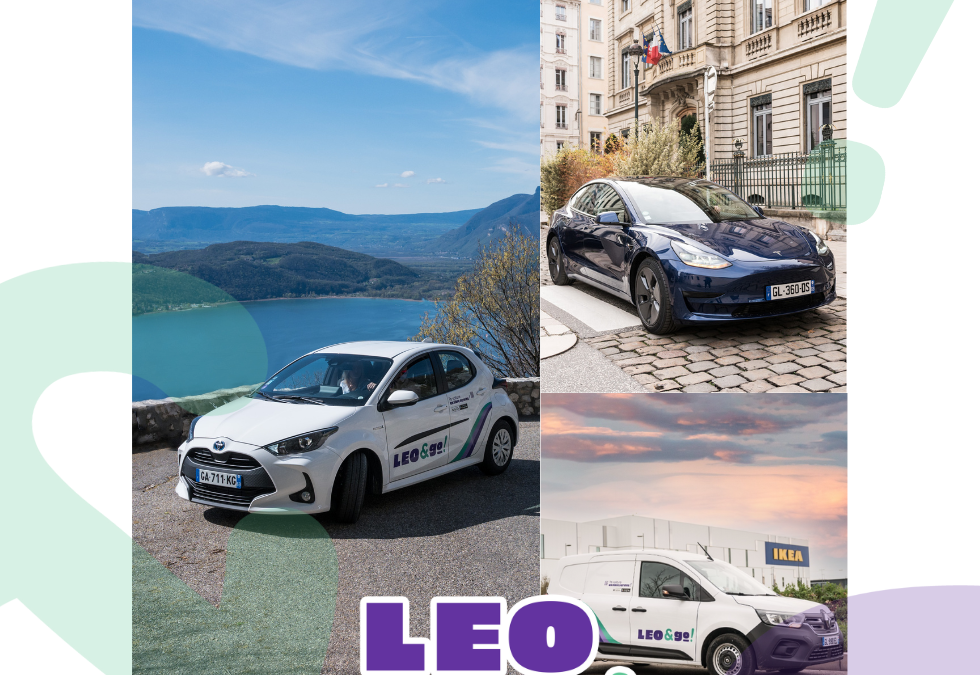Vulog’s leading partner, Okai, delves into how the global company was able to emerge into the mobility space.
November 19, 2020 For this edition of The Shared Journey, together with Tony Gunther, Okai’s Head of e-Commerce, we discussed the development of the micromobility market during the Covid-19 pandemic, the evolution of Okai as a vehicle manufacturer, and what is next for the company as it seeks to expand its business model.
Tell us about Okai. How did the company start in the mobility space?
Okai was founded 17 years ago and it’s still privately owned by the original founder, Jiangtao Lu. The company is not driven by any shareholder or investor interest but by the passion of the founder. Since Mr. Lu was ten years old, he was interested in scooters, mechanics, and electronics. He hand-built the first scooters with his wife and friends. Over the years the company grew to over 750 employees in China, Germany, and the United States. All of this he created thanks to his passion for mechanics!
Okai started as a scooter manufacturer, how has your vehicle offering diversified over the years?
In terms of innovation, we experimented with various forms and shapes, but until recently it has always been scooters! We focus on developing vehicles where we see the main driver for change when it comes to urban mobility. While the actual focus still remains on scooters, e-bikes, and eventually e-mopeds will become more and more important in the coming years.
Everything that helps transform the mobility space and urban environments for micromobility is something we are working on and where we see the biggest driver for real change.
How do you see the market growing? How has this vision been impacted, or not, by the Covid-19 pandemic?
It is estimated that by 2050, 75% of the world’s population will be living in urban communities. With this trend in mind, we know that urban mobility systems and infrastructure need to adapt. The problem now is that, especially when it comes to Covid-19, while public transportation is convenient, it might not be the safest mode of transportation to use right now. With this in mind, I think Covid-19 actually enhanced that rethink of the urban mobility space. 65% of infrastructure in every city in the world is focused on cars, 30% is dedicated to bikes, and the rest concentrates on pedestrian zones. Covid-19 is helping to make that change a bit quicker in terms of rethinking what we actually need to have in well-working urban infrastructures.
Looking at Okai’s portfolio, what is the percentage breakdown of vehicles sold for private use vs. shared fleets?
It is 80% shared fleets and 20% private use. The vehicles we sell for private use, however, are not owned by our brand as we mostly manufacture vehicles for other companies. At Okai, we want to increase our brand visibility because people ride our scooters all over the world, but they don’t know it. Changing that percentage towards more consumer-oriented branding is a big task for us right now.
Okai is known as an electric scooter manufacturer, what made you decide to add the e-bike to your vehicle offering?
At first glance, you may think that Okai became an electric bicycle supplier because the e-bike is such a hot topic and an additional revenue stream. But actually, as a micromobility manufacturer, we never stuck with just one product. We constantly look at how to re-use the technology that we have already created in terms of motors and designs. It’s not just something that came out because we thought that e-bikes are nice, but rather because we believe in safe simplified transportation for everyone. We don’t say we believe in electric scooters for everyone, but we say we believe in transportation in the sense of micromobility. Since we see ourselves as a technology company driven by innovation and design, there will be more to come than just e-bikes. Our mission is to produce high-quality products that people love.
What makes Okai stand out from other electric micromobility vehicle providers?
I think Okai stands out from other electric micromobility vehicle providers, especially when it comes to our relationship with mobility service providers. We have very close and transparent communication with our clients. The problem is not having challenges, the problem is how do you react to those challenges as a company when they arise? This is where I think Okai is outstanding because we work closely with our customers to solve whatever problems occur. The needs also change from city to city and from country to country. Some operators might use a lightweight scooter with a smaller battery because of a smaller geographic area, whereas others might really need a heavy-duty scooter due to the fact that vandalism might be higher in that area.
Another area where Okai stands out is that the company has a true interest in sustainability. We are testing repurchasing used products from mobility service providers. We will have more to share on this in 2021 and beyond.
What are the main challenges Okai is facing today?
Manufacturing is an incredibly competitive market. While we are one of the biggest electric scooter manufacturers in the shared mobility space, there are so many scooter manufacturers who cut prices. This is a problematic trend, but while we might not be the cheapest, in the end, you get what you pay for. We need to be sure that people understand why quality usually comes at a certain price.
In your opinion, how does the Okai/Vulog benefit mobility service providers?
When scooter-sharing companies and micromobility operators work with Vulog and Okai, they are getting a fantastic software and hardware (vehicle) combination for shared micromobility. Okai vehicles are pre-integrated with Vulog’s AiMA platform and have been tested on-site at Vulog headquarters. This means that our hardware and software combination allows you to get to market quicker. Finally, I would say that both companies are trusted with handling large-scale, multimodal projects in cities throughout the world. Not only do we have the knowledge and expertise to deliver these projects, but also have reliable customer support.
What are the next steps for Okai? How do you plan on improving your product offering?
What we have done over the past few years is bring everything in-house. We are likely the only full-stack manufacturer in this industry. When it comes to industrial design, firmware development, connectivity, IoT, battery production, and final assembly, nothing is outsourced. We even have our own paint shop to powder coat the frames! This along with the constant learning via the different challenges of shared mobility providers, allows us to learn by remaining close to the frontline. We also try to get specialists from outside the company to evaluate our processes and teach us their expertise. This constant learning process from both inside and outside the company is something we always strive for.
Vulog, the world’s leading tech mobility provider is proud of its partnership with Okai, the world’s largest e-scooter and e-bicycle manufacturers. Okai is a global team with more than 17 years of micromobility experience and aims to leave an impact instead of a large carbon footprint.




